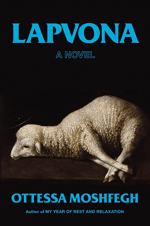|
This section contains 2,425 words (approx. 7 pages at 400 words per page) |

|
Wealth
Lapvona is, first and foremost, a parable about wealth, privilege, and access. The novel’s premise hinges on the sense of alterity between the lives of the people in Lapvona and the lives of the moneyed residents of the manor. Moshfegh structures her narrative such that each of these experiences of the global forces that afflict Lapvona—drought, hunger, political unrest—is lent equal weight. Her choice to deploy a split narrative structure in “Summer” presents scenes of immense luxury and indulgence directly alongside scenes of suffering and starvation as a means of emphasizing this experiential gap. While Villiam has sausage-eating contests and toys with his servants for entertainment while remaining “numb and dumb to other people’s sorrow” (116), Jude, Ina, and the other Lapvonians commit acts of incredible violence and sacrifice, resorting to cannibalism to avoid starvation. Yet, in a reserved sense, this lack of...
|
This section contains 2,425 words (approx. 7 pages at 400 words per page) |

|




